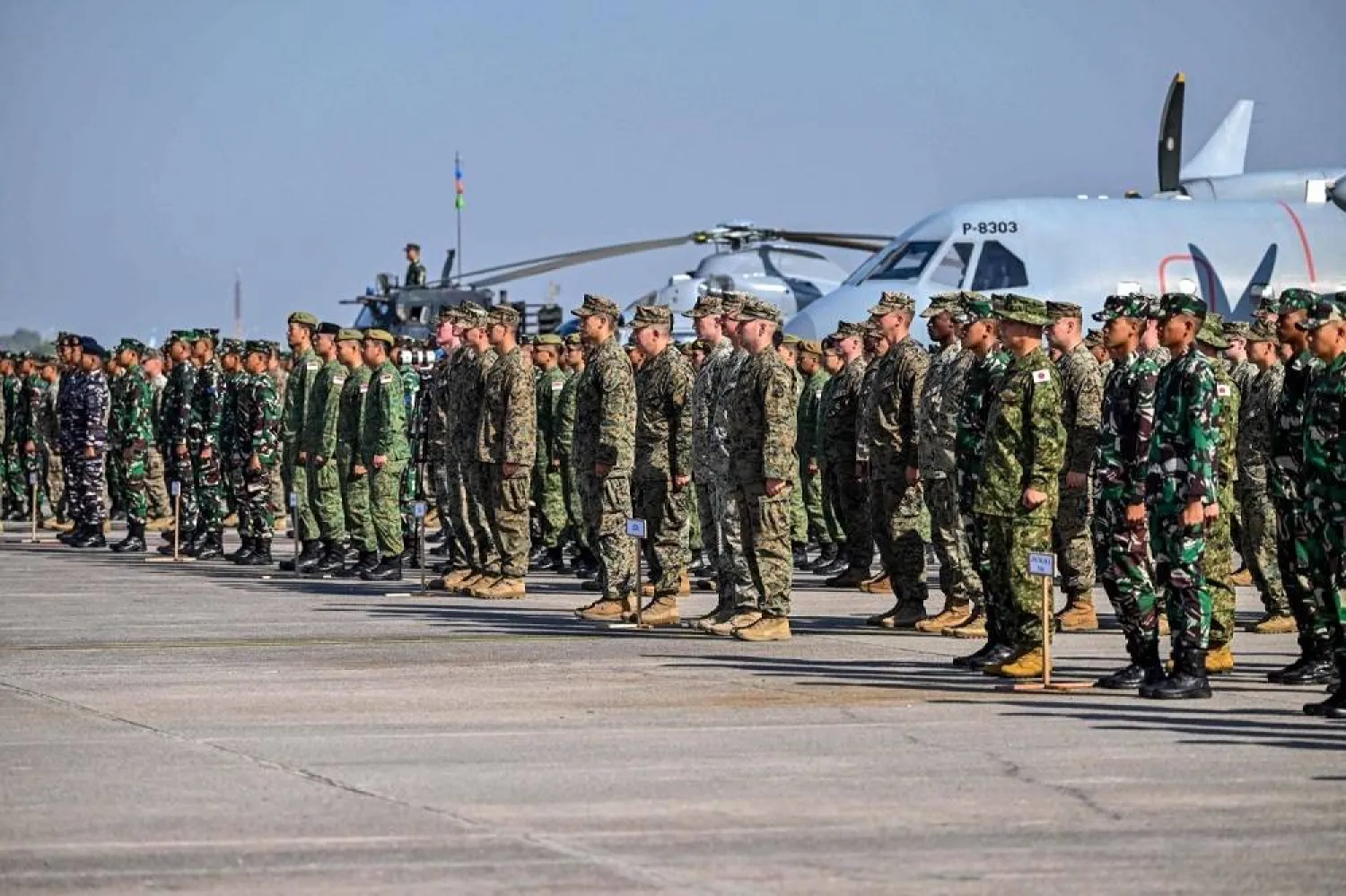Thousands of military personnel from Indonesia, the US, and other allied countries began two weeks of exercises Monday, focused on ensuring stability in the Asia-Pacific.
The region, particularly in the South China Sea, has seen tensions rise this year with flashpoints between littoral states claiming sovereignty over disputed islands and waterways.
The annual exercises — known as Super Garuda Shield — started in Sidoarjo, East Java, with Indonesia deploying more than 4,400 troops to the drills.
The Indonesian military said around 1,800 US troops and several hundred from other countries will also take part.
The exercise, first held in 2007, has evolved into a “world-class joint/multinational event designed to enhance our collective capabilities,” said Major General Joseph Harris, the Commander of The Hawaii Air National Guard.
The program includes expert academic exchanges, professional development workshops, a command-and-control exercise, and field training that culminates with a live-fire event, he added.
Training will include staff and cyber exercises, airborne operations, joint strikes, an amphibious exercise, and simulated land operations.
Charles Flynn, commanding general of the US Army Pacific, said in a statement last week that the exercises would show commitment to a safe, stable and secure Indo-Pacific.
The two-week exercise, which will be held until September 6 in multiple locations across the nation, is also joined by participants from Australia, Japan, Britain, Singapore, South Korea, Canada, New Zealand and France.
Brazil, Germany, Malaysia, Philippines, Thailand, the Netherlands, Timor Leste, and Papua New Guinea are participating in the exercise as observer nations.









